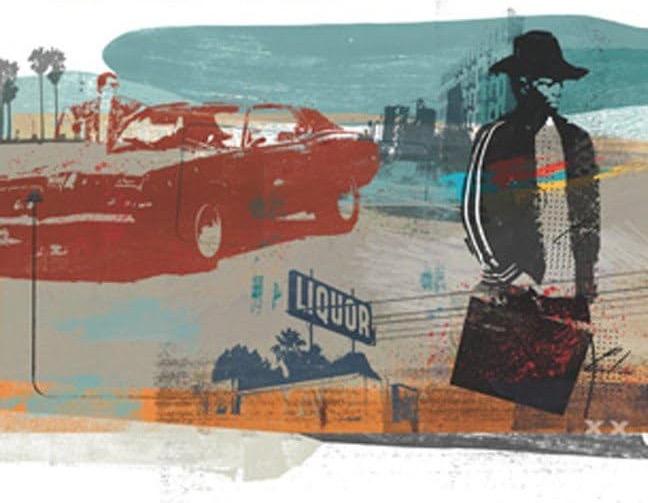What was that line from a behind-the-scenes Albert Brooks in “Broadcast News”? “I say it here and it comes out there.”
Twice now The New Yorker’s Anthony Lane has read my mind and beaten me to the punch. Because it turns out my favorite film critic is also a fellow crime fiction fan. Earlier this year he invoked Ross Macdonald, a writer unjustly at risk of obscurity, just as I was finally getting around to reading him, in particular a tattered 1980s paperback of “The Chill.”
Lane’s appreciation was occasioned by the Los Angeles wildfires, and the fact that Macdonald had described such conflagrations so well in “The Underground Man,” from 1971. I would interject here a nod to what to me is Raymond Chandler’s best short story — at 52 pages, handsomely collected in the Vintage paperback “Trouble Is My Business,” it’s almost a novella — “Red Wind,” throughout which the hot Santa Anas evocatively blow.
Then, wouldn’t you know it, in the July 7 & 14 New Yorker Lane is back and hailing Elmore Leonard, opening with “Unknown Man No. 89,” which happens to have been my introduction to probably the most entertaining novelist the country has produced. In fact, it’s the one book I’d recently been considering reading for a second time.
Sometime in the 1990s I pulled it off a shelf at the Fairbanks North Star Borough Public Library. It’s a long story, but I happened to be living in a cabin outside of town with no running water and no television. I mention the no TV part because it’s true, the modern human can become image-starved. A few times I did go take in a “major motion picture” at the theater down on the main drag, but other than that my cravings were satisfied by Elmore Leonard, such was the richness of his dialogue, the snap of his action, the good lowlife humor, the sheer fun to be had.
But I would like to thank Anthony Lane for parceling out the snippets of biography, and only snippets. I’d rather let work speak for itself. With the exception of John Updike, who put so much of himself into his fiction, I don’t really want to know all that much about my heroes. This article had just enough Leonard.
Detroit, sure. But born in New Orleans? Who knew? A Catholic school upbringing? I might’ve guessed. Two hours of writing every morning before the kids were up, before even coffee? Before daily 8 a.m. Mass? Incredible.
And that helped solve my conundrum. I’d been wondering what I might have missed, if I had indeed read every one of his crime novels. But here came a reminder of an outlier, 1987’s “Touch,” featuring a stigmata-afflicted miracle worker who is, naturally, taken advantage of.
You got me, Elmore. Tell me more.

